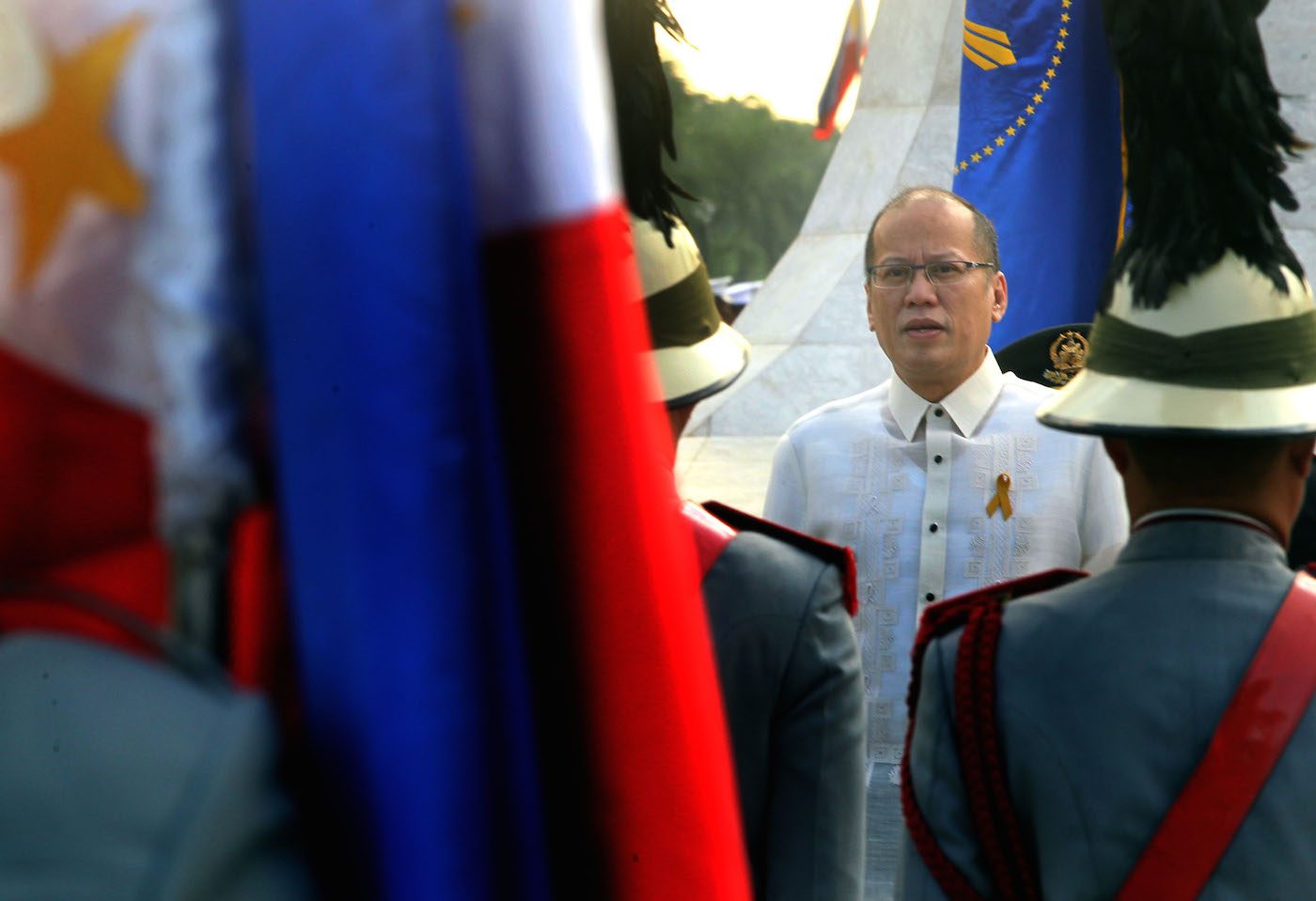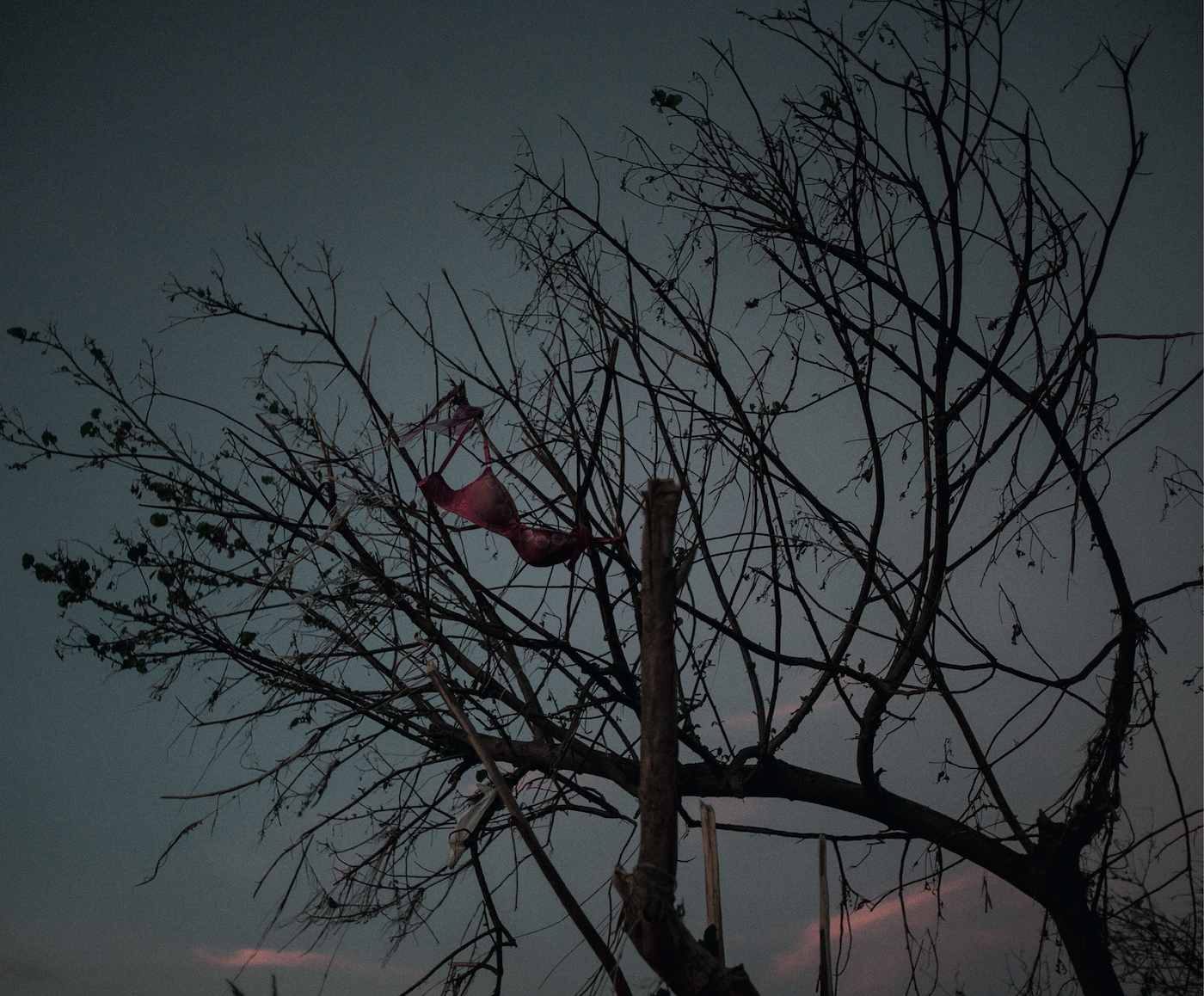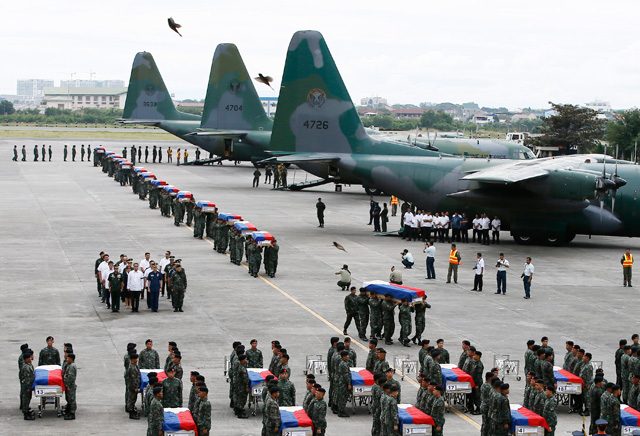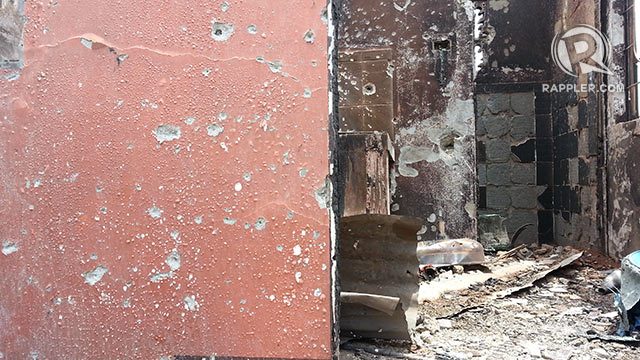SUMMARY
This is AI generated summarization, which may have errors. For context, always refer to the full article.

MANILA, Philippines – Suppose you were standing on a highway.
Suppose it were noon, and there is mud everywhere, crusting over bicycles, dinner plates, a ceiling fan with a missing blade, a refrigerator. There is a red car standing vertical inside a garage. There is a pink bra hanging tangled on a tree branch. The air is thick with the stench of corpses. They are underfoot, limbs stretching from beneath fallen beams, or wrapped in damp lace curtains. Further out, in the water, delivery trucks float half-submerged beside the dead.
Suppose it were November, two days after the strongest typhoon recorded in the world. There is no drinking water. There is no power. Grandmothers sleep with butcher knives. Warehouses are empty. Everything from flat screen televisions to cans of baby formula have been carried out of shopping malls. Houses are gone. Everyone who is still standing is scrambling to find food or family.
Suppose you were one of the survivors. Suppose you were one of the hundreds lined up outside the airport, watching the C130s straggle in, hoping for a way out. Suppose you were one of the women walking through the debris, covering the eyes of small siblings, telling them to keep going, to look away. Suppose you were one of the fathers wandering from corpse to corpse, turning over bodies, hunting for the three-year-old who was lost in the water.
Suppose a car stops, and the President steps out.
“There were so many people walking down the road we passed,” he remembers, “and they were walking, back and forth.”
He said he asked them all to go home. It is possible to suppose he did not understand there were no homes.
“I told them, ‘What are we doing outside? Maybe it would be better if everyone goes home, goes back to their villages, because help will come from the national government, and it has to go through the villages, they are the first responders, okay.’”
It is a story the President tells to prove he had never been lacking in empathy
“Was I lacking in understanding of their condition? Of what was going through their minds?”
Just facts
It was a Sunday, two days after the onslaught of Super Typhoon Haiyan in November 2013, when President Benigno Aquino III descended on Tacloban City. The villages had been leveled. The airport security chief was shirtless on the street, mourning his dead children. A local village captain was trying to hail a truck to carry his wife’s corpse for burial.
A briefing was planned for the temporary command center located in downtown Tacloban City. Among those who waited for the President on November 10, 2013 was a resident named John Manibay. He introduced himself as a staffer of Cat8 Television. In the story Manibay tells, President Aquino was read an “unbelievable report” that put the death count at 72. The report included reassurances that clean water was available, and that peace and order was under control.

Manibay raised his hand. He said there were no less than 700 corpses piled at nearby Magallanes Street. He said the command center’s kitchen was using rainwater to cook food. He said there was a peace and order problem.
Manibay pointed to another man, a local hotel owner named Kenneth Uy, saying, “That man nearly got shot this morning, he’s lucky he didn’t get hit.”
To which the President of the Republic of the Philippines replied, “You’re still alive, aren’t you?”
Two years later, Communications Secretary Herminio Coloma Jr found himself explaining away the President’s largely inexplicable response to the Tacloban crisis.
“The context of what [the President] said was to answer a question during the open forum,” Coloma said. “There was the premise that people were being slaughtered, something like that. And all the President said was that it was not supported by concrete reality. It was just proof, that you who were among the people in general that you said was subjected to slaughter, you’re still there.”
The context, reduced to bare facts, is this: a Tacloban survivor said a man named Kenneth Uy was nearly killed two days after the typhoon, and the President answered that Kenneth Uy was still alive. Certainly the entire roomful of government officials and local residents were aware Kenneth Uy was still alive.
“Buhay ka pa naman, ‘di ba?”
This is the same President who spoke in passive-agressive insult against the cities whose dead numbered most, attributing the casualty count to local executives, themselves victims.
“Now as for other places, I’d rather not comment, because as your President I’m not supposed to get angry. No matter how frustrated I am, I’ll just stay silent and keep my peace.
“As your President, I am not allowed to get angry. I’ll just suffer through it with an acidic stomach,” he added.
Luneta standoff
It was a response that characterized Aquino’s 6 years as president. A little more than 3 weeks after he took office, a former police inspector named Rolando Mendoza climbed onto a bus packed with Hong Kong tourists and waved his M16. The standoff ended with 8 hostages dead and accusations – many of them valid – of incompetence and botched procedures.
A smiling Aquino appeared on live television in the aftermath. He later explained that “in that particular instance,” after the tragedy, “it was the absurdity” that made him smile.
“Some people will curse, will shout to high heavens,” he said. “[The smile] is an effort to control [my emotions and actions].”
Lee Ying-chuen, who was in the back of the bus when Mendoza began shooting, told the South China Morning Post that Aquino’s attitude “only shows that he has no empathy.”
“As a public figure, he should have expected how others would perceive the smile,” said Lee.
Aquino, while saying he took responsibility for the botched negotiations, refused to apologize to the families of the victims.
Define empathy
The question of empathy has long been asked of outgoing President Aquino. It is a question that inevitably puts him on the defensive.
(READ: Aquino turns defensive over criticism he lacks empathy)
“I am not play-acting at being president. I perform my role as president,” he said.
To take him at his word means this: that the face Aquino shows, at the height of crisis and away from his teleprompter, is his true face. Aquino has denied accusations of insensitivity and a lack of compassion. Those criticisms, he said, lack basis. He has gone so far as to read out a Wikipedia definition of empathy to illustrate his point.
In the context of the presidency, empathy is not just political correctness or the public performance of a role. In a country whose true brand is crisis, a leader who understands – or at least acknowledges – the desperation of individual suffering is seen as the leader who will move rapidly towards the alleviation of that suffering.
US President Barack Obama emphasized the importance of empathy in a 2006 commencement address – a topic he would raise throughout his presidency. “When you think like this – when you choose to broaden your ambit of concern and empathize with the plight of others, whether they are close friends or distant strangers – it becomes harder not to act, harder not to help.”
Aquino said it himself, on June 30, 2010, when he stood before a yellow-clad crowd at the Quirino Grandstand and swore his oath before the Filipino people.
“Have you experienced exasperation and anger at a government that instead of serving you, needs to be endured by you? So have I. I am like you.” It was the deepest expression of empathy – not only did he understand, he was a victim who was empowered to enact change.

Yet in the aftermath of the more recent crises that have hijacked the headlines, Aquino’s silence has spoken volumes. It took days for the President to offer a statement over the shooting deaths of rice protestors in Kidapawan. In the bloody aftermath of the misencounter in Mamasapano, Maguindanao, when the day flag-wrapped coffins arrived at the Villamor Air Base, it was not Aquino who stood at the tarmac to salute the uniformed men killed in the line of duty. He was in Laguna instead, praising Mitsubishi Philippines for standing by their “commitment to the Filipino people” during the inauguration of its Sta Rosa plant.
When he finally met with the widows of the Special Action Force commandos, he included himself in the ranks of the victims.
“My father also died,” said Aquino. “I know how you feel, so we’re even.”
Asked, for example, why he failed to appear at the wake of Jennifer Laude, who was allegedly murdered by a visiting United States marine in Subic, Aquino said a visit would make him uncomfortable.
“In general, I don’t attend wakes of people I don’t know,” he said.
(READ: Why Aquino won’t attend Laude’s wake)
Response to critique
The question of empathy was asked most recently in early June, a month before Aquino was set to step down.
The President, as always, denied the claim, instead offering proof of his sensitivity. He spoke of Tacloban. He spoke of Zamboanga.
On September 9, 2013, a group of over 400 armed rebels from the Moro National Liberation Front took control of 5 coastal villages in Zamboanga City, using 150 civilians, including children, as human shields.
“What should I have done?” Aquino asked media. “I should empathize with all of them and been as angry and demonstrated that I was very angry, or do I finish it? Would that have helped the interests of society?”
Should he have gone hysterical? he asked. Should have torn out what was left of his hair?
That empathy does not mean hysteria is lost on the President. In the story Aquino tells, to express compassion would compromise the immediate resolution of a crisis. He paints his choice, as he often does, as one between two opposing actions – a clash between a certain good and an unnecessary evil.
In the end, Aquino said, because of his command over the hostage crisis, the situation was resolved with only two hostages killed and 200 rebels arrested. Those two, he said, died in an attempt to escape before the government’s own rescue mission.
And so, in an attempt to prove his empathy, Aquino further emphasized his inability to understand context.
“Let me remind you,” he said as further proof, “and society may have forgotten it, that there were over 200 hostages, correct? The two who died were killed while escaping before we employed our hostage rescue, they did not die because of the hostage rescue.”

Thirteen of the dead were civilians. One of the hostages was a 2-year-old baby named Eithan who died with a bullet inside his skull. Eithan died in the crossfire, still a hostage, while his parents struggled to protect him from a firestorm of bullets. Yet regardless of how he died, to paint his death as somehow his or his parents’ fault is not only insensitive, it is a betrayal of the people Aquino claims to have sworn to protect.
“I went there. I took active charge to calm the situation and we headed into a good solution.”
The siege led to at least 218 more people dead one year after the siege of Zamboanga City, more than the total number of casualties killed in the crossfire during the 21-day standoff.
(READ: Zamboanga still under siege)
Many of the newly dead were young children – the internally displaced who died from diarrhea and dehydration in the hellhole that was left after the mortars stopped falling.
Stay alive
It would be wrong to call this President apathetic. He is capable of emotion, particularly when cornered and criticized. He does not apologize. He does not retract. He lashes out in righteous indignation at the press and his critics. Perhaps this is when the insensitivity is most pronounced – when he is surprised, time and again, at the outcry his behavior incites. He shifts from claiming empathy to dismissing its value.
He is not an actor, he says. The presidency is not a showbiz performance. This is who he is.
Benigno Aquino III was elected on an outpouring of empathy – the shared compassion of a nation who understood he had lost a mother that they considered theirs as well. He was a senator with a lackluster legislative record who won the palace under a rain of yellow confetti. By no stretch of imagination can it be argued Aquino won on his own merit. His coronation was both a reaction to the corruption endemic to the Arroyo administration as much as it was an extended wake for Corazon Aquino.
“You are my bosses,” Aquino said of the people in his first inaugural. He said it again, in state of the nation addresses across the last 5 years. He spoke of his father’s sacrifice and his mother’s nobility. In speech after prepared speech, Aquino spoke in casual Filipino and promises a shared journey down the straight path.
His is the moral presidency, the decent presidency. It would be a different story had he chosen to frame his administration differently, or to deny the value of empathy itself. Instead, he says he does not lack for empathy.
“I don’t understand actually if that criticism even has basis,” he told reporters.
It is his dismissal that demonstrates the extent of Aquino’s insensitivity.
We are still alive. To Aquino, it should be enough. – Rappler.com
Add a comment
How does this make you feel?
There are no comments yet. Add your comment to start the conversation.